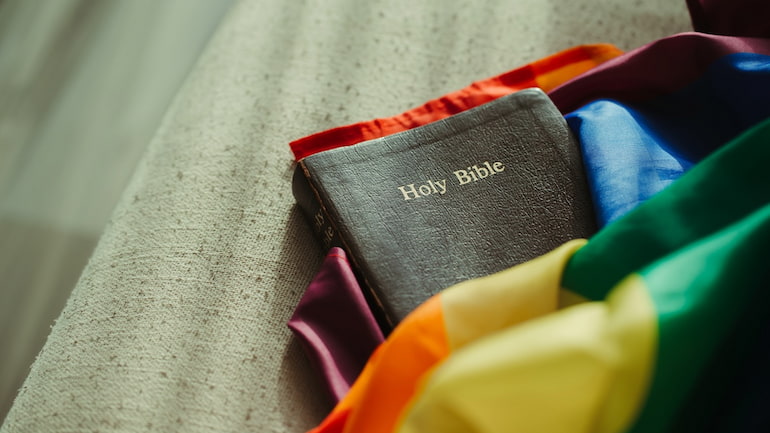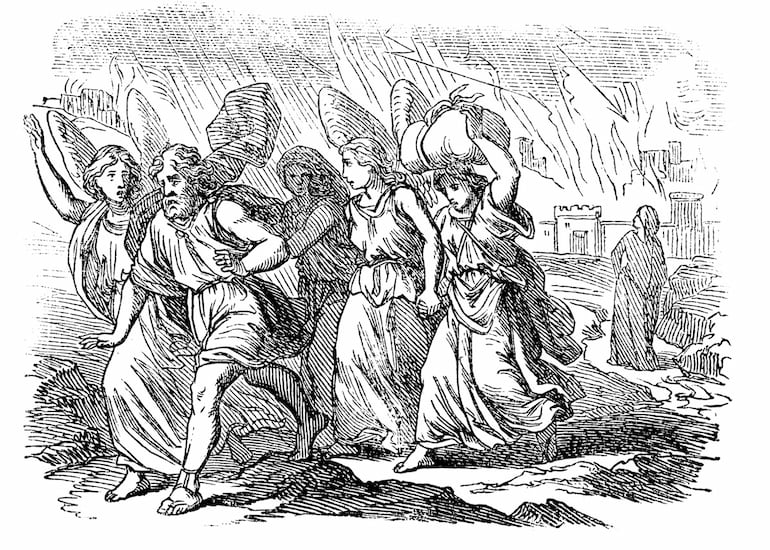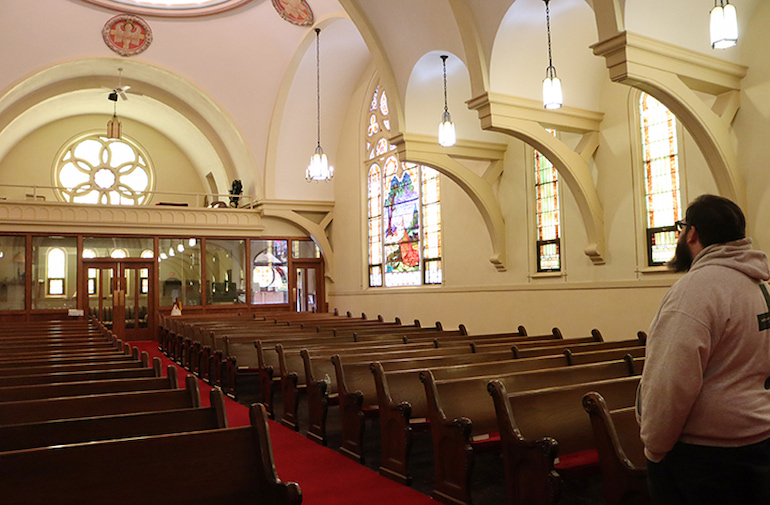Many of us were taught at one time to believe homophobia or transphobia is synonymous with being Christian.
I’m providing this series of columns to MainStream, bringing years of experience studying Biblical scriptures, to tell you: That is not the case.

Rather, a series of “clobber passages” in the Bible have been used, incorrectly, to harm, demonize, and justify discrimination against LGBTQ+ people. As I’ll illustrate in this series, the Bible does not authorize, nor does it advocate or justify, hatred against the LGBTQ+ community.
I’m starting this series by tackling what may be the most famous of all the clobber passages: Genesis 19, where we find the story of Sodom & Gomorrah.

Sodom and Gomorrah about hospitality, penetration rather than homosexuality
You’re likely familiar with the passage: a couple of guys (angels) enter Sodom and receive hospitality from a guy named Lot. An angry mob soon shows up and demands that Lot send out the visitors, so that the mob may “know them” or “have sex with them” (depending on your translation).
Lot instead offers his two virgin daughters to the mob, which refuses this offer. The angelic visitors whisk Lot, his daughters, and his wife away to safety outside the city so that God can destroy it.
Most conservative, literal, or fundamentalist readers will look at this story and say, “Well, look at that! God must have destroyed the city because the mob wanted to have sex with guys!”
This gross misrepresentation of the text misses two key details and context that are key to the text’s meaning.
• The role of penetration: The ancient world glorified penetration. Dr. Michael Carden writes, in The Queer Bible Commentary by Mona West, that in the ancient world, the penetrated party was considered subservient to the penetrator.
This meant that people with penises were automatically placed higher up on the social ladder. Those without penises were placed below the penetrators, in the ancient world.
The subservient included people with vaginas, eunuchs, female virgins, and intersex people at the bottom – along with males who were penetrated, and females who did the penetrating.
• The role of hospitality: in the ancient Near East, you simply did not violate the concept of hospitality. In fact, in Genesis 18, these same two angels visit Abraham, and they’re accompanied by God.
Abraham immediately stops what he’s doing and prostrates himself, then instructs his wife Sarah to prepare a meal for them. His haste to welcome and feed the visitors tells us how seriously the ancient world perceived hospitality.
We find some other clues in Genesis 18 to the real meaning of that “clobber passage” in Genesis 19. “How great is the outcry against Sodom and Gomorrah and how very grave their Sin!” God is quoted as saying in Genesis 18:20. “I must go down and see whether they have done altogether according to the outcry that has come to me, and if not, I will know.”
This passage clues us in to the fact that the communities surrounding Sodom are being violated, exploited and harmed by the Sodomites.
Early in Genesis 19, we read the Sodomites saying to one of the visiting angels, ““This fellow came here as an alien, and he would play the judge! Now we will deal worse with you than with them.”
This tells us that the men of Sodom are planning to gang-rape the angelic visitors in the same way they’ve been violating the communities around them.
When we apply context to Genesis 19, we realize: the chief sins of Sodom are violating others, and forsaking hospitality toward their visitors. Sodom and Gomorrah’s sins are not homosexuality.
If someone who identifies as a Christian still tries to tell you that Genesis 19 condemns LGBTQ+ people, steer them to Isaiah 43 and Isaiah 56. These two Hebrew Scriptures illustrate that all people are intentionally created by God and that the queer in society are blessed people.

Above, Pastor Tyler Yost overlooks the Church of Peace UCC sanctuary in Rock Island, which he leads.
The path back from believing LGBTQ+ means ‘sinner’
I am committed to helping people heal from religious trauma and toxic theologies. I grew up in a conservative fundamentalist congregation, where my friends and people I considered family taught me to hate under the guise of God’s will.
They told me that “those people” were sinners and we should love them but hate their sin.
I rejected that theology when I began pursuing my theological education. I found that Scripture not only didn’t advocate for homophobia, transphobia, or any other discriminatory ideology, but it actually called people out for behaving that way.
In addition, I came to terms with my own bisexuality, and lamented over the time that I lost believing myself to be a sinner.
I’m not going to lie to you, there are some harmful and messed-up things in the Bible. There are also plenty of beautiful things in there.
If we approach Scripture with a lens of questioning, and we recognize the historical context in which it was written, we find much more beauty within its pages.
In future columns, I’ll be dissecting other Biblical passages historically misapplied to condemn LGBTQ+ people. I hope you’ll join me on this journey of clarifying the truth about the Bible and LGBTQ+ people.
This column first appeared in the June 2025 edition of MainStream. Do you have a specific question about Biblical texts used to condemn homosexuality or transgender people? Send your question to Pastor Tyler at pastor@churchofpeaceucc.org

